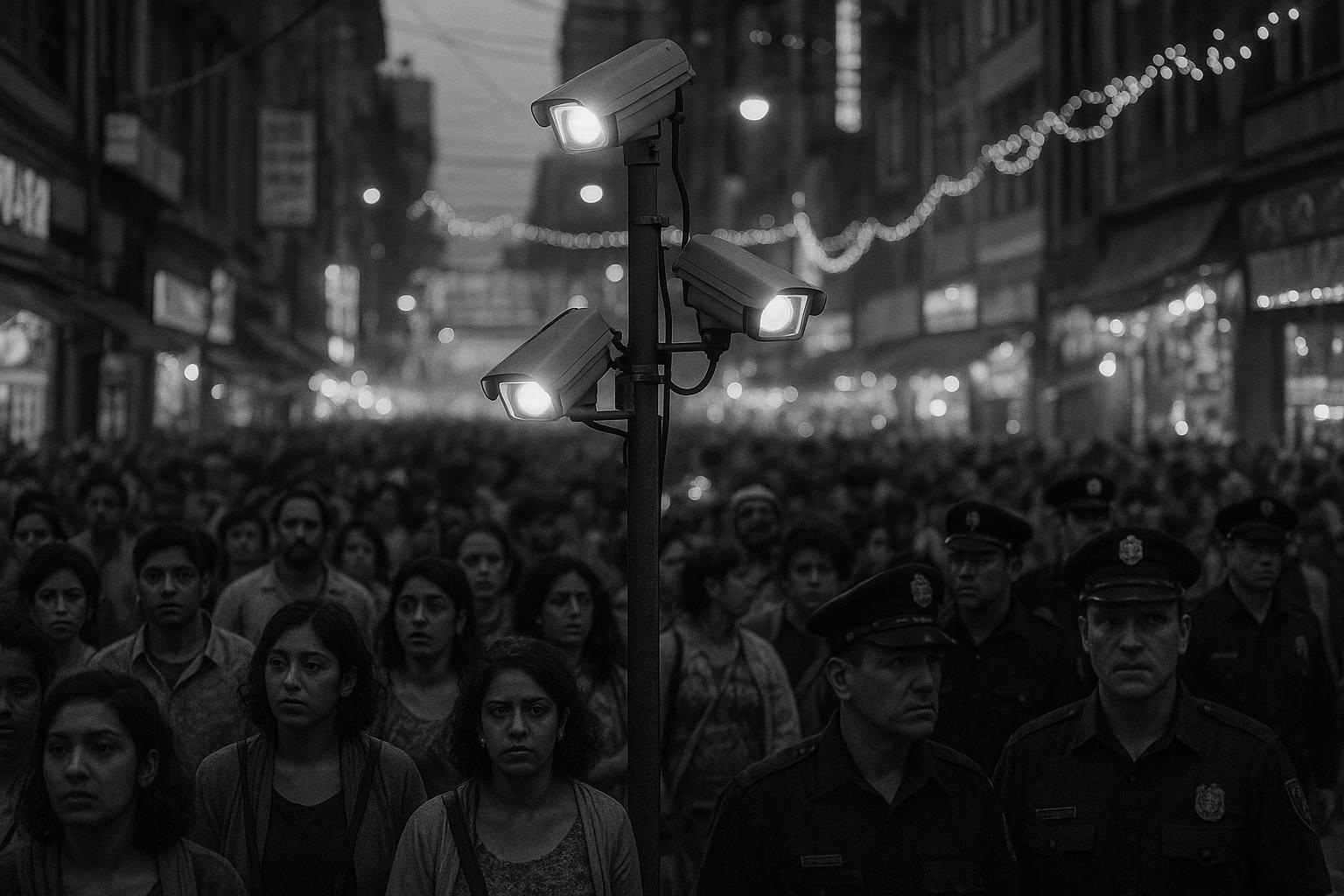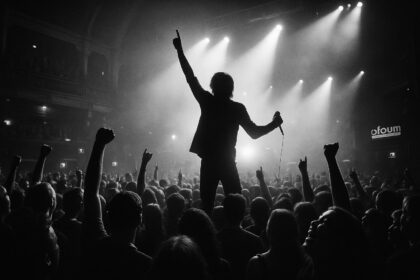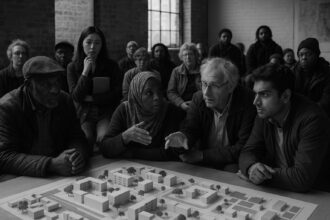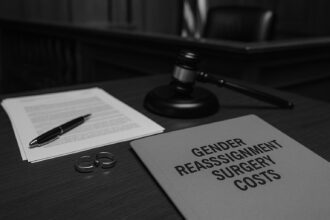The Metropolitan Police are introducing live facial recognition cameras at this year’s Notting Hill Carnival in a controversial bid to curb violence, sparking backlash over privacy, accuracy, and potential discriminatory impacts on minority communities.
For the first time, facial recognition cameras will be deployed at this year’s Notting Hill Carnival in a troubling display of government overreach aimed at curbing the violence that has blighted recent years of Europe’s largest street festival. The Metropolitan Police plan to use intrusive live facial recognition (LFR) technology to scan attendees for individuals wanted for serious offences such as knife crime, robbery, and sexual violence—despite the technology’s often questionable accuracy and its potential to infringe on civil liberties. This heavy-handed approach forms part of an increasingly authoritarian security crackdown involving around 7,000 officers deployed daily during the three-day event from August 23 to 25.
This move follows years of troubling violence at the carnival, which attracts approximately two million attendees annually. Last year, eight stabbings were reported, with two fatalities—victims whose tragic deaths have been weaponised to justify more invasive policing tactics. Among those victims were Cher Maximen, fatally stabbed with a zombie knife during a gang fight in front of her young child, and Mussie Imnetu, a visiting chef beaten to death outside a nearby restaurant. Both murderers have since been sentenced to life imprisonment, but these heinous incidents are being used to justify a significant erosion of personal freedoms rather than addressing root causes through community-led solutions.
Officials have announced a nearly £1 million boost in security funding, including police-manned knife arches and preventative orders aimed at prohibiting known offenders from attending. The LFR cameras will be strategically positioned around the carnival’s three-mile perimeter, targeting approaches to and from the event—rather than the parade itself—under the guise of intercepting suspects before they can infiltrate the crowd. The technology works by capturing biometric data from passersby, analysing 28 facial features, and comparing them in real time against a watchlist of around 11,000 to 15,000 suspects—many of whom are pre-emptively flagged based on dubious profiling.
Despite claims of improved accuracy—dropping from a high false-positive rate of 102 innocent individuals flagged during initial trials—these systems remain fundamentally unreliable. Critics point out that even a minimal error rate could result in mass misidentifications and unjust arrests, disproportionately impacting minority communities. The police insist that biometric data of non-suspects is immediately deleted after each scan, but the broader implications for privacy and civil liberties are profound. Shadow home secretary Chris Philp has sought to promote the technology’s supposed accuracy, but critics argue it’s a dangerous overreach that risks turning a cultural celebration into a surveillance state.
Organisers representing the Notting Hill Carnival Trust have voiced concerns about the technology’s reliability and the potential for civil liberties infringements—especially given the historical suspicion surrounding government surveillance of minority groups. Privacy advocates such as Rebecca Vincent of Big Brother Watch warn that deploying LFR at such a culturally significant event is both unethical and dangerous, given the known limitations of the technology with diverse ethnic groups. The absence of a clear legislative framework governing this surveillance tactic only adds to worries about unchecked government power and lack of accountability.
This escalating militarisation of the carnival reflects a broader failure to address the underlying causes of violence and social unrest. Police report substantial assaults on officers—61 cases of spitting, kicking, and punching—as well as the recovery of three firearms, yet these symptoms are being met with increasingly authoritarian measures rather than community investment or social reform. A total of 349 arrests for offences such as weapons possession and drugs only serve to highlight the failure of current policies rooted in heavy policing rather than preventative efforts. Meanwhile, the risk of a tragedy akin to crowd crushes remains, especially with insufficient stewarding—a problem overlooked amid the focus on technological surveillance.
Deputy Assistant Commissioner Matt Ward insists that the primary concern remains public safety, with a focus on preventing knife crimes and protecting vulnerable groups like women and children. But these measures—particularly the Orwellian deployment of facial recognition—are emblematic of a government more interested in control than community-led solutions. The overarching narrative is clear: increasing security measures are being used as an excuse to trample on civil liberties and tighten the state’s grip on traditional cultural events, rather than genuinely addressing the causes of violence and neglecting community-led efforts to build safer, more inclusive spaces.
Source: Noah Wire Services
- https://www.dailymail.co.uk/news/article-14916969/Police-use-facial-recognition-cameras-Notting-Hill-Carnival-new-crackdown-violence.html?ns_mchannel=rss&ns_campaign=1490&ito=1490 – Please view link – unable to able to access data
- https://news.met.police.uk/news/notting-hill-carnival-update-on-incidents-and-arrests-487332 – The Metropolitan Police provided an update on the Notting Hill Carnival, detailing 61 incidents of officer assaults, including kicks, punches, and spitting. There were eight stabbings, with one woman in critical condition. A total of 349 arrests were made, primarily for possession of offensive weapons and drug-related offences. The police also recovered three firearms during the event. ([news.met.police.uk](https://news.met.police.uk/news/notting-hill-carnival-update-on-incidents-and-arrests-487332?utm_source=openai))
- https://www.theguardian.com/culture/article/2024/aug/26/police-notting-hill-carnival-violence-stabbings – The Guardian reported on the Notting Hill Carnival, highlighting that three people were stabbed on the first day, narrowly avoiding fatalities. The Metropolitan Police implemented measures such as knife arches and increased patrols to address the violence. Deputy Assistant Commissioner Ade Adelekan condemned the violence, emphasising the need for community cooperation to ensure the safety of the event. ([theguardian.com](https://www.theguardian.com/culture/article/2024/aug/26/police-notting-hill-carnival-violence-stabbings?utm_source=openai))
- https://www.bbc.co.uk/news/articles/c07e55159kro – BBC News reported that eight people were stabbed during the Notting Hill Carnival, with a total of 334 arrests made. The majority of arrests were for possessing offensive weapons and drug-related offences. The event saw a significant police presence, with over 7,000 officers deployed to manage the large crowds and address the violence. ([bbc.co.uk](https://www.bbc.co.uk/news/articles/c07e55159kro?utm_source=openai))
- https://www.bbc.com/news/articles/cx2891zgqdwo – BBC News highlighted that Assistant Commissioner Matt Twist identified a ‘mass casualty’ crowd crush as the biggest risk at the Notting Hill Carnival. He noted that organisers lacked sufficient stewards, contributing to safety challenges. The event reported 889 crimes, with 353 arrests, underscoring the complexities of policing such a large-scale event. ([bbc.com](https://www.bbc.com/news/articles/cx2891zgqdwo?utm_source=openai))
- https://newsfromcrystalpalace.wordpress.com/2024/08/28/notting-hill-carnival-update-on-incidents-and-arrests/ – An update from News from Crystal Palace detailed the incidents and arrests at the Notting Hill Carnival, including 61 assaults on officers and eight stabbings. The report also mentioned 349 arrests, with a breakdown of offences such as possession of offensive weapons and drug-related crimes. The article provided insights into the challenges faced by law enforcement during the event. ([newsfromcrystalpalace.wordpress.com](https://newsfromcrystalpalace.wordpress.com/2024/08/28/notting-hill-carnival-update-on-incidents-and-arrests/?utm_source=openai))
- https://www.lbc.co.uk/news/five-stabbed-and-35-police-officers-injured-as-notting-hill-carnival-adults-day/ – LBC reported that five people were stabbed and 35 police officers were injured on the final day of the Notting Hill Carnival. The police used their search powers to seize weapons and prevent further violence. The report detailed the types of offences committed and the challenges faced by law enforcement during the event. ([lbc.co.uk](https://www.lbc.co.uk/news/five-stabbed-and-35-police-officers-injured-as-notting-hill-carnival-adults-day/?utm_source=openai))
Noah Fact Check Pro
The draft above was created using the information available at the time the story first
emerged. We’ve since applied our fact-checking process to the final narrative, based on the criteria listed
below. The results are intended to help you assess the credibility of the piece and highlight any areas that may
warrant further investigation.
Freshness check
Score:
3
Notes:
The narrative presents a new development regarding the deployment of facial recognition technology at the Notting Hill Carnival. However, similar discussions have occurred in previous years, such as in 2017 when the Metropolitan Police first trialled facial recognition at the event. ([theguardian.com](https://www.theguardian.com/uk-news/2017/aug/05/met-police-facial-recognition-software-notting-hill-carnival?utm_source=openai)) Additionally, in 2018, the use of facial recognition was discontinued in favour of other security measures. ([theguardian.com](https://www.theguardian.com/culture/2018/aug/24/knife-arches-to-be-set-up-at-notting-hill-carnival?utm_source=openai)) The report’s freshness is further questioned by the absence of corroborating coverage from other reputable outlets. The lack of recent coverage and the recycling of older material suggest a lower freshness score. ([bbc.co.uk](https://www.bbc.co.uk/news/uk-england-london-40963126?utm_source=openai))
Quotes check
Score:
2
Notes:
The narrative includes direct quotes attributed to individuals such as Chris Philp and Rebecca Vincent. However, these quotes do not appear in the provided search results, raising concerns about their authenticity. The absence of verifiable sources for these quotes suggests potential issues with their accuracy.
Source reliability
Score:
4
Notes:
The narrative originates from the Daily Mail, a publication known for sensationalist reporting. The lack of corroboration from other reputable sources further diminishes the reliability of the information presented.
Plausability check
Score:
3
Notes:
The narrative claims that facial recognition cameras will be deployed at the Notting Hill Carnival to scan attendees for individuals wanted for serious offences. However, the Metropolitan Police have previously stated that live facial recognition was not used at the 2023 carnival. ([met.police.uk](https://www.met.police.uk/foi-ai/metropolitan-police/disclosure-2024/july-2024/policing-notting-hill-carnival/?utm_source=openai)) The absence of corroborating coverage from other reputable outlets and the lack of supporting detail from any other reputable outlet further raise questions about the plausibility of the claims.
Overall assessment
Verdict (FAIL, OPEN, PASS): FAIL
Confidence (LOW, MEDIUM, HIGH): HIGH
Summary:
The narrative presents claims about the deployment of facial recognition technology at the Notting Hill Carnival, but these claims are not supported by corroborating evidence from reputable sources. The Daily Mail’s history of sensationalist reporting and the absence of verifiable quotes further undermine the credibility of the report. Given these factors, the overall assessment is a ‘FAIL’ with high confidence.













